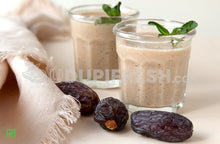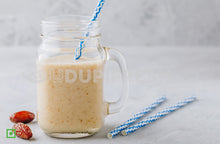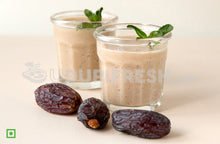Dates have an excellent nutrition profile.
Since they’re dried, their calorie content is higher than most fresh fruit. The calorie content of dates is similar to that of other dried fruits, such as raisins and figs (1).
Most of the calories in dates come from carbs. The rest are from a very small amount of protein. Despite their calories, dates contain some important vitamins and minerals in addition to a significant amount of fiber.
A 3.5-ounce (100-gram) serving provides the following nutrients (1):
Calories: 277
Carbs: 75 grams
Fiber: 7 grams
Protein: 2 grams
Potassium: 20% of the RDI
Magnesium: 14% of the RDI
Copper: 18% of the RDI
Manganese: 15% of the RDI
Iron: 5% of the RDI
Vitamin B6: 12% of the RDI
Dates are also high in antioxidants, which may contribute to many of their health benefits
Since they’re dried, their calorie content is higher than most fresh fruit. The calorie content of dates is similar to that of other dried fruits, such as raisins and figs (1).
Most of the calories in dates come from carbs. The rest are from a very small amount of protein. Despite their calories, dates contain some important vitamins and minerals in addition to a significant amount of fiber.
A 3.5-ounce (100-gram) serving provides the following nutrients (1):
Calories: 277
Carbs: 75 grams
Fiber: 7 grams
Protein: 2 grams
Potassium: 20% of the RDI
Magnesium: 14% of the RDI
Copper: 18% of the RDI
Manganese: 15% of the RDI
Iron: 5% of the RDI
Vitamin B6: 12% of the RDI
Dates are also high in antioxidants, which may contribute to many of their health benefits






